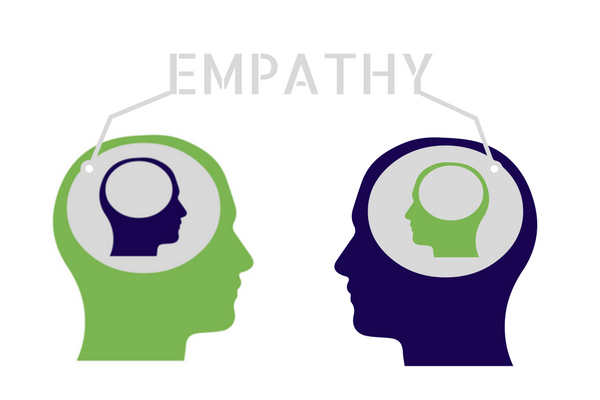Introduction
Emotional Intelligence refers to the capacity to recognize and manage emotions in oneself and others. It is composed of five key elements:
- Self-Awareness: The ability to accurately perceive one’s emotions and understand how they affect thoughts and behavior.
- Self-Regulation: The ability to manage, control, and adapt emotional responses, particularly in stressful situations.
- Motivation: The drive to pursue goals with energy and persistence, even when faced with setbacks.
- Empathy: The ability to understand, recognize, and respond to the emotions of others.
- Social Skills: The ability to manage relationships, navigate social complexities, and inspire others.
Emotional Intelligence is crucial because it can influence nearly every aspect of a person’s life. Whether in personal relationships, academic settings, or the workplace, a person with high EI is more likely to build stronger connections and manage challenges effectively.
Key Takeaways
- Emotional intelligence is essential for personal and professional success.
- EI helps in understanding and managing emotions, improving relationships, and making informed decisions.
- The five components of emotional intelligence—self-awareness, self-regulation, motivation, empathy, and social skills—are interrelated and contribute to emotional well-being.
- Developing EI can lead to better leadership, communication, and conflict resolution skills.
What is Emotional Intelligence?
Are you tired of feeling stagnant in your professional growth? Do you sometimes find it difficult to navigate the challenges that arise in your career? If so, it’s time to tap into the power of emotional intelligence EQ. Welcome to our blog, “How Emotional Intelligence Helps Your Professional Growth.”
So how to improve emotional intelligence? Imagine this scenario: You’re in a meeting, presenting a game-changing idea that could revolutionize your organization. But as soon as you open your mouth, your nerves take over, and your message gets lost in a sea of self-doubt. Frustrating, isn’t it? That’s where EQ comes in.
In this blog, we’ll explore the world of emotional intelligence, delving into its immense benefits and how it can transform your professional journey. We’ll help you understand your strengths, identify and overcome your weaknesses through introspection, and become a better communicator. We’ll discuss how EQ can inject the right leadership traits into your skillset and how it can develop emotional resilience and fortitude.
Types of Emotional Intelligence
Emotional intelligence is often broken down into five main categories. Each of these areas contributes significantly to both personal growth and career advancement.
Self-Awareness
Self-awareness is the cornerstone of emotional intelligence. It is the ability to recognize one’s emotions and understand how they impact thoughts, behavior, and decision-making. People with high self-awareness can identify when they are stressed or angry and how it influences their actions. They are often more reflective and have a deep understanding of their strengths and weaknesses.
Key Features :
Emotional Awareness: The ability to recognize and understand your own emotions, including knowing why you feel the way you do and how your emotions influence your actions.
Self-Reflection: The capacity to reflect on your past actions, decisions, and experiences in order to learn and grow. This involves analyzing your behaviors and understanding the motivations behind them.
Recognizing Strengths and Weaknesses: Knowing your personal strengths and areas of improvement allows you to make decisions that align with your capabilities and seek opportunities for growth.
Understanding Impact on Others: Being aware of how your thoughts, emotions, and behaviors affect the people around you. This awareness allows for better relationships and more mindful communication.
Mindfulness: Practicing mindfulness means being present in the moment and fully aware of your thoughts and feelings without judgment. It helps in regulating emotions and behavior.
Example: A manager who is self-aware may notice that their frustration during meetings leads to poor decision-making. By recognizing this, they can take steps to manage their emotions, improving their decision-making skills and their leadership effectiveness.
Self-Regulation

Self-regulation is the ability to control or redirect disruptive emotions and impulses. It involves staying calm and composed under pressure and maintaining control over one’s behavior in challenging situations. People who are high in self-regulation don’t make impulsive decisions and tend to think before they act.
Example: An employee might face a situation where they are unfairly criticized by a colleague. Instead of reacting impulsively and escalating the situation, they take a deep breath, pause, and respond calmly, demonstrating emotional control.
Motivation
Motivation is the internal drive to set and achieve goals with passion and energy. People who are high in motivation have a strong desire to improve themselves and persevere through setbacks. They are typically optimistic and focus on long-term success rather than immediate rewards.
Key Features :
Intrinsic Motivation: The drive to engage in an activity for its own sake, driven by internal factors such as personal satisfaction, passion, or interest. Examples include doing something because it’s enjoyable or fulfilling.
Extrinsic Motivation: The drive to engage in an activity due to external rewards or pressures, such as money, recognition, or approval. This type of motivation is often influenced by tangible outcomes.
Goal-Oriented: Motivation often revolves around the pursuit of specific goals, whether short-term or long-term. Having clear goals provides direction and focus for sustained effort.
Persistence and Resilience: Motivation involves the ability to stay committed to tasks and overcome obstacles. People with high motivation continue their efforts even in the face of setbacks.
Self-Determination: The feeling of autonomy and control over one’s actions. Motivated individuals often feel they are choosing their paths, which leads to greater engagement and satisfaction.
Example: An entrepreneur who is motivated by a vision for the future may face several failures along the way. However, they continue to push forward, demonstrating resilience and persistence toward their goals.
Empathy

Empathy is the ability to understand and share the feelings of others. It is crucial for building strong relationships, whether in personal or professional settings. People with high empathy are often good listeners and can put themselves in other people’s shoes to offer support.
Example: A team leader who demonstrates empathy might recognize that an employee is struggling with personal issues. By offering support and understanding, the leader helps the employee feel valued, which in turn improves job satisfaction and loyalty.
Social Skills
Social skills refer to the ability to build and maintain healthy relationships. People with strong social skills can communicate clearly, manage conflicts, and work collaboratively with others. They are also adept at influencing others and inspiring action.
Example: A sales manager with strong social skills may build lasting relationships with clients by communicating effectively and addressing concerns promptly, which fosters trust and increases sales opportunities.
Advantages of Emotional Intelligence

Personal Success
High emotional intelligence offers significant advantages in personal life. Self-aware individuals are better able to handle stress and overcome personal challenges, improving their overall emotional well-being. Emotional intelligence also leads to better relationships, as individuals with high EI are more empathetic and adept at managing conflicts.
Example: A person who is highly self-aware might recognize when they are feeling overwhelmed and take time to recharge, preventing burnout and maintaining a positive outlook on life.
Professional Success
In the professional realm, emotional intelligence can be the key to career advancement. Individuals with high EI are better equipped to lead teams, negotiate effectively, and manage workplace stress. These skills are especially important in leadership positions, where decision-making and conflict resolution are frequent.
Example: A CEO with high emotional intelligence may recognize the importance of maintaining morale during tough economic times and communicates with empathy to ensure the team stays motivated.
Improved Relationships
One of the most notable advantages of emotional intelligence is the improvement in relationships. High EI individuals are able to connect with others on a deeper level, understanding their emotions and responding appropriately. This leads to stronger friendships, romantic relationships, and professional partnerships.
Example: A couple with high emotional intelligence can navigate disagreements more effectively, using empathy and communication to resolve conflicts without causing lasting damage to their relationship.
Stress Management and Conflict Resolution

EI helps individuals handle stress more effectively by recognizing and addressing emotional triggers before they escalate. In professional settings, emotional intelligence allows individuals to defuse conflicts before they spiral out of control, leading to more harmonious interactions.
Example: A team leader with high emotional intelligence may step in during a heated disagreement between two employees, using their empathy and communication skills to mediate the situation and prevent further escalation.
How Emotional Intelligence Contributes to Personal Success
Building Stronger Personal Relationships
Strong personal relationships require emotional intelligence to understand the needs, desires, and emotional states of others. Whether in family, friendships, or romantic relationships, individuals with high EI are better at resolving conflicts, maintaining open communication, and offering support.
Example: A parent with high emotional intelligence is able to identify when their child is feeling anxious or upset, providing comfort and guidance in a way that strengthens the parent-child bond.
Managing Personal Challenges Effectively
Life is full of challenges, from health issues to financial setbacks. Those with high emotional intelligence are better equipped to navigate these difficulties, as they can manage their emotions and stay focused on solutions.
Example: During a personal loss, an emotionally intelligent person might allow themselves to grieve but will also maintain the ability to seek support from others, avoid excessive negative thinking, and work through the process in a healthy way.
Self-Motivation and Goal Achievement
Emotional intelligence enhances motivation, which is crucial for setting and achieving personal goals. By staying positive and resilient in the face of obstacles, individuals with high EI can maintain focus on long-term objectives.
Example: A person pursuing a fitness goal may face setbacks like an injury, but with high emotional intelligence, they stay motivated and adjust their plan rather than giving up.
How Emotional Intelligence Enhances Professional Success

Leadership and Management Skills
Leaders with high emotional intelligence can inspire, guide, and support their teams effectively. They recognize the emotional needs of their employees and foster an environment of trust and respect, which improves team performance and morale.
Example: A manager who recognizes when an employee is struggling with work-life balance can offer flexible solutions, such as adjusted work hours or additional support, helping the employee feel valued and motivated.
Emotional Intelligence in the Workplace
In the workplace, emotional intelligence allows employees to handle pressure, manage conflicts, and collaborate more effectively. High EI individuals are often seen as problem-solvers, mediators, and communicators, all of which are crucial in today’s diverse and dynamic work environments.
Example: A project manager with high EI might address team frustrations by organizing a meeting to openly discuss challenges, leading to more effective teamwork and a higher likelihood of project success.
Enhancing Teamwork and Collaboration
Emotional intelligence promotes collaboration by improving communication and empathy among team members. Teams with high EI are more likely to understand each other’s strengths and weaknesses, communicate openly, and support one another in achieving shared goals.
Example: In a marketing team, members who exhibit empathy can understand each other’s perspectives, leading to more creative brainstorming sessions and smoother project execution.
Conflict Resolution and Negotiation
Emotional intelligence is invaluable when it comes to conflict resolution. High EI individuals can manage difficult conversations, de-escalate tension, and find solutions that work for everyone involved.
Example: In a negotiation, an emotionally intelligent negotiator can remain calm under pressure, empathize with the opposing party, and create win-win solutions that benefit both sides.
Practical Examples of Emotional Intelligence in Action
- Example 1: A manager notices an employee’s frustration during a meeting. Rather than dismissing it, they approach the employee after the meeting, listen to their concerns, and work together to resolve the issue.
- Example 2: A team member shows empathy by helping a colleague with a heavy workload, understanding that the colleague is dealing with personal issues at home.
Strategies to Enhance Emotional Intelligence
- Practicing Self-Reflection: Regular self-reflection helps individuals become more self-aware and develop emotional control.
- Developing Empathy and Active Listening: Listening carefully and being present in conversations can increase empathy.
- Improving Stress Management Techniques: Practicing mindfulness, meditation, or exercise can improve emotional regulation.
- Seeking Feedback and Continuous Learning: Asking for constructive feedback helps individuals improve their emotional intelligence over time.
Also Read : Why Is Health Equity Essential for a Sustainable Future?
Conclusion
Emotional intelligence plays a critical role in navigating the complexities of both personal and professional life. It influences how we interact with others, manage stress, and make decisions. By cultivating emotional intelligence, individuals can enhance their relationships, boost career prospects, and improve overall well-being. As the world becomes increasingly interconnected and demanding, emotional intelligence will continue to be a valuable asset in achieving long-term success.
FAQs
1. Can emotional intelligence be learned?
Yes, emotional intelligence can be developed and improved over time with practice and self-awareness.
2. How does emotional intelligence impact leadership?
Leaders with high emotional intelligence can connect with their teams, foster collaboration, and resolve conflicts, which improves team performance and morale.
3. What are the benefits of emotional intelligence in personal relationships?
EI helps individuals communicate more effectively, understand others’ emotions, and manage conflicts, leading to stronger, healthier relationships.
4. Is emotional intelligence more important than IQ?
While IQ is important for academic success and technical skills, emotional intelligence is crucial for personal growth, leadership, and relationship-building.
5. How can I improve my emotional intelligence?
You can improve your EI by practicing self-reflection, developing empathy, managing stress, and actively seeking feedback.
6. Does emotional intelligence affect job performance?
Yes, employees with high EI tend to perform better because they can handle stress, collaborate effectively, and make sound decisions.
7. Can emotional intelligence be measured?
Yes, there are various assessments and tools available to measure emotional intelligence, such as the EQ-i (Emotional Quotient Inventory).



